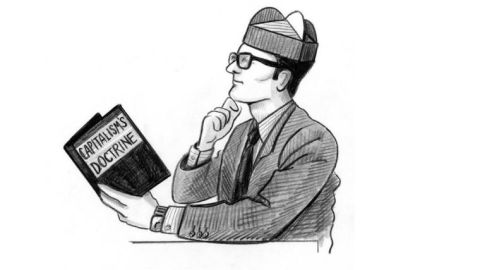Our Unfaithful Cardinals of Capitalism

As Pope Francis pits “the Church against the free market,” capitalists and lawmakers can learn from Catholic errors. However troubling economic inequality is, naked ethical inequality can be worse. Unequal treatment before the “law,” especially of over-indulged elites, is unfair and risks revolt. History and some little played Shakespeare shows why.
To swiftly recap the Protestant Reformation: In 1517 Pope Leo X offered “indulgences” to anyone donating to his rebuilding fund. Indulgences grant “amnesty from punishment in the afterlife.” Even after sinners confess, do penance, and get absolution, they still “face punishment…in Purgatory, before they can enter heaven.” But “in exchange for…prayers, devotions, or pilgrimages…a Catholic can receive an indulgence,” which instantly “reduces or erases” time in Purgatory. Martin Luther, disgusted by claims that as soon as money “in the coffer rings, the soul from Purgatory springs,” triggered rebellion against papal power with his “Disputation on the Power and Efficacy of Indulgences.”
As Shakespeare’s King John puts it: Why dread “the curse that money may buy out…by the merit of vile gold.” Shakespeare was dramatizing a historical encounter in which a cardinal threatened King John with the pope’s ultimate sanction: excommunication (a calamity in those God-fearing times.) Shakespeare saw Luther’s logic: Laws are not laws if exemption can be bought.
What’s the lesson for capitalism? Take J.P. Morgan Chase’s $13 billion settlement over its role in the last economic crisis. Though that’s the largest corporate penalty ever, it is less than the measurable damage caused, or the profits made while doing that damage. Ethically it’s like buying an indulgence (though laxer since it needed no confession). Lawmakers must surely see King John’s point. Especially if the profits exceed the penalty, there’s no deterrent.
Though it lacks a pope, capitalism surely has cardinals who preach its doctrine. And some cardinals of capitalism practice ethical inequality: unequal treatment before the rules. They’re applied differently to themselves than to others. Capitalist doctrine teaches against government intervention, and its deadliest sin is failure in the marketplace. But many capitalists would let neither stand in the way of profit. Bankers who got government bailout, far from accepting the market’s harsh punishment, instead awarded themselves large bonuses. Many they hurt got no help, never mind bonuses.
Capitalism, like Catholicism, is a cafeteria faith. Many followers don’t practice what is preached. Capitalists who routinely break faith with their own rules and seek to avoid both government and market discipline fly the “free markets” banner like a flag of convenience. As Shakespeare knew, such unruliness spreads: “Since kings break faith upon commodity, Gain, be my lord.”
Some ethical structures demonstrably work better (see Behavioral Telescopes and The Golden Punishment Rule). More than unequally outcomes, unequal treatment before the rules tends to provoke revolt. Indulging capitalist vices hoping that markets will transform them into what’s best for all is empirical and logical myopia. Capitalism, the dominant secular faith of our
times, risks a reformation.
Illustration by Julia Suits, The New Yorker Cartoonist & author of The Extraordinary Catalog of Peculiar Inventions.





